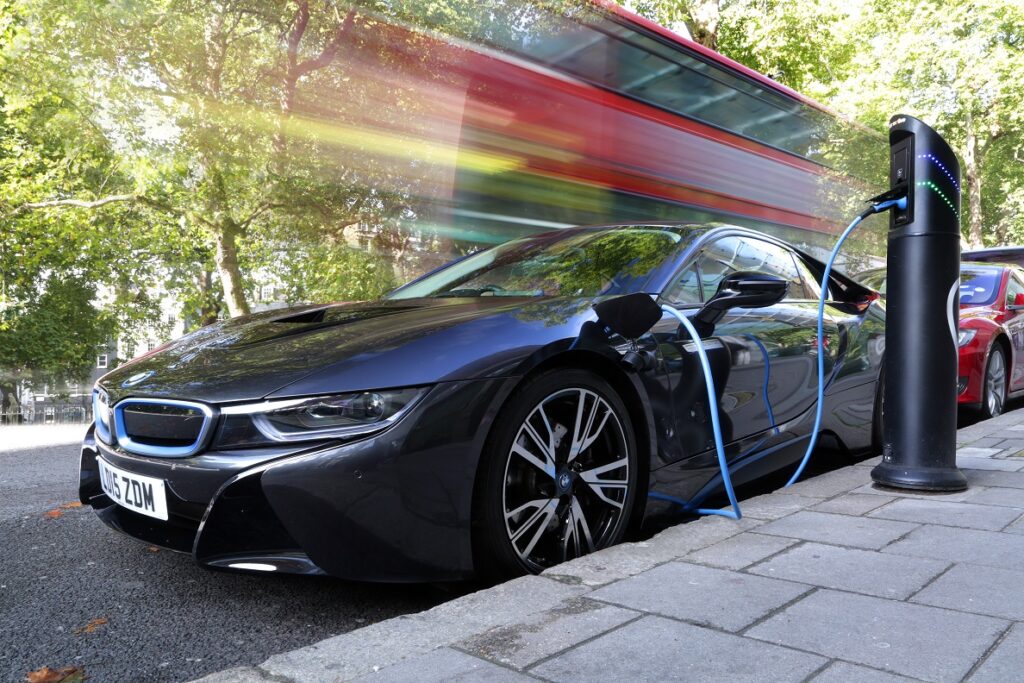The government has unveiled its long-awaited and oft-delayed ‘Road to Zero’ transport strategy, detailing a raft of measures to transform the country’s low carbon transport transport.
Electric vehicle charging infrastructure is predictably discussed in great detail, with transport secretary Chris Grayling stating the coming decades to be “transformative” for both the motor industry and national infrastructure.
“We expect to see more change in the transport sector over the next 10 years than we have in the previous century,” Grayling said.
“The Road to Zero Strategy sets out a clear path for Britain to be a world leader in the zero emission revolution – ensuring that the UK has cleaner air, a better environment and a stronger economy.”
Among the measures committed to within the Road to Zero strategy are;
- Continuing the plug-in car grant until “at least 2020” and maintain the current rates of support until October this year at least, with some form of consumer incentive continuing beyond 2020;
- Reiterated the previously announced £400 million Charging Infrastructure Investment Fund. The strategy document discusses the progress made so far, revealing that the Infrastructure and Projects Authority has held 75 stakeholder meetings and intends to launch a request for proposals to identify the fund manager later this summer;
- Detail in the Automated and Electric Vehicle Bill mandating for chargepoints at motorway service stations and that all electric vehicle chargers are deemed ‘smart’;
- Potentially ensuring that all new homes built in the UK are “electric vehicle-ready”. The government says it is its “intention” to ensure that EV charging points are fitted into all new homes and is to consult on the proposals as soon as possible;
- Assurances that all new street lighting columns are to include vehicle chargepoints to bolster on-street charging solutions;
- A commitment to maintain the Electric Vehicle Homecharge Scheme until at least March 2019;
- An upgrade of the Workplace Charging Scheme from the current £300 per point to 75% of the purchase and installation costs of each point, up to a maximum of £500, and;
- £40 million for a research and development programme, unveiled by summer 2018, to develop and trial “innovative, low cost” wireless charging technologies.
But while the EV elements of the strategy focus predominantly on EVs and charging, there is a not insignificant discussion surrounding their impact on the grid.
The strategy argues there to be a “huge opportunity” for EVs to play a “dynamic and complementary role” in the evolving electricity system, with particular nods to smart charging and vehicle-to-grid technologies.
The government also downplays potential disruption to the grid, arguing that while EVs stand to increase demand which would in-turn require more network reinforcements, the adoption is expected to be gradual.
An ‘important step’, but one lacking ambition
David Smith, chief executive at the Energy Networks Association, meanwhile stressed that network operators had already been pioneering a wide range of low carbon transport projects.
“They are ready to connect the charging points and refuelling stations that will give consumers and businesses a choice of different options for their transport. It is important that networks have visibility of where and when new infrastructure is needed, so they can use the latest technology available and access the data needed to do that.
“That’s vital to join the whole system up, use the existing grid more effectively and keep costs down for our customers to deliver a smarter, cleaner and more efficient energy system.”
Energy UK chief executive Lawrence Slade welcomed the strategy as an “important step” towards creating a zero carbon economy, but said stressed his disappointment at a lack of ambition regarding timescales.
The government has refused to bow to increasing pressure to be more ambitious in its phase-out of the sale of conventional-fuelled vehicles and stuck with its original date of 2040. Just a fortnight ago Lord Deben, chair of the Committee on Climate Change, was forthright in his recommendation that the date be brought forward “as close to 2030 as possible”.
“We – and many others right across industry and beyond – have made it clear that we are ready to go faster than the current 2040 deadline and seize the opportunity to help meet our emissions reduction targets and cut harmful air pollution in our towns and cities. In addition to the benefits of becoming a world leader in the technologies involved, EVs’ ability to store and supply electricity could have a transformative effect on the energy system itself.
“With rapidly improving vehicle performance and falling costs, it is essential that the infrastructure and regulation keep pace – so we welcome the Government’s support for enabling this. Put all this in place with measures that give choice to customers whilst enabling smart ways to manage demand on the grid and the EV roll out could happen much quicker than expected,” Slade added.
Slade’s sentiments were shared by James Court, head of policy and external affairs at the Renewable Energy Association, who added that new measures within the strategy were “very welcome”.
“Electric Vehicles and charging infrastructure are key to the future decentralised energy system that will lead to a smarter, cleaner and cheaper market, but we need to make sure we are having a no regrets revolution, and that starts with ensuring we are putting in smart chargers that will give homeowners and the grid flexibility,” he said.
Charity group Campaign for Better Transport (CBT) welcomed much of the content within the strategy, but condemned its overall ambition as “disappointing” and said it “fails to match the urgency of the situation”.
“Overall this strategy is a step backwards, giving concessions to keeping hybrids on the road which will water down the already inadequate 2040 target. The confusion over the future of hybrids combined with the lack of clear transitional arrangements means industry and consumers still lack the certainty needed to kick-start the switch to electric,” Bridget Fox, sustainable transport campaigner at CBT, said.





